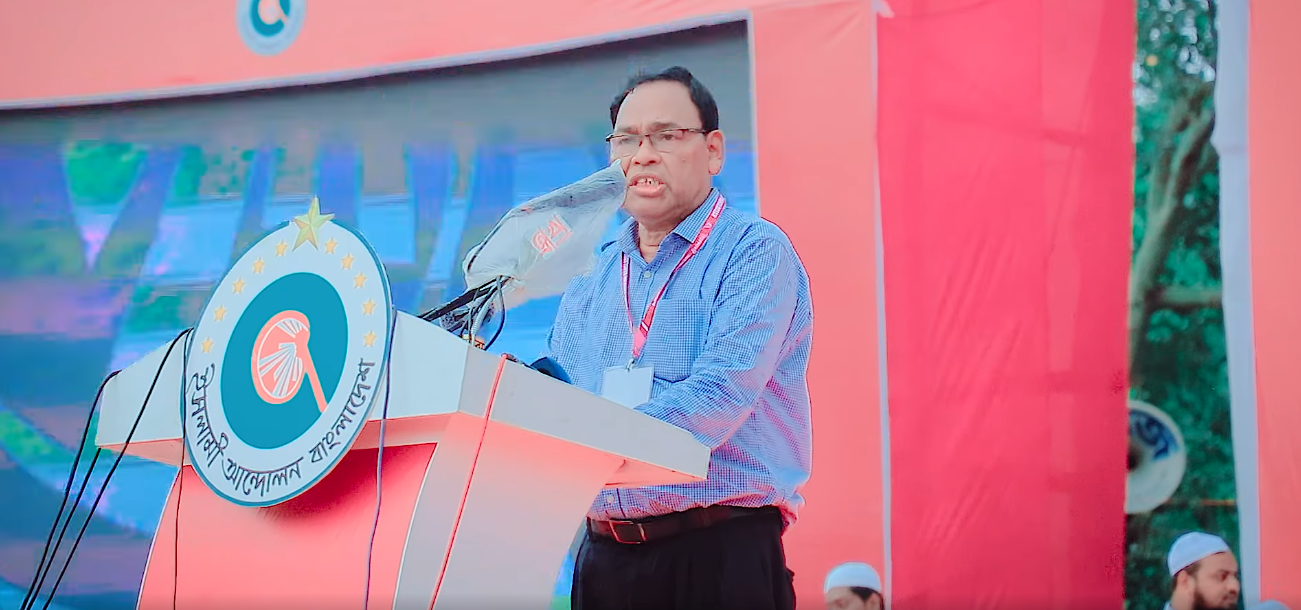One year after protests, minority leaders call for proportional system
Demands for electoral reform are growing in Bangladesh. Several voices from across the political spectrum have proposed scrapping the first-past-the-post system to enhance the presence of minorities in parliament. Elections are expected in April next year.
Dhaka (AsiaNews) – Almost a year after former Prime Minister Sheikh Hasina fled, consensus is growing in Bangladesh around a proposal to reform the electoral system using proportional representation.
This is backed not only by some recently formed political parties, but also by figures representing religious minorities, like Catholic leader Nirmol Rozario, president of the Bangladesh Hindu Buddhist Christian Unity Council and the Bangladesh Christian Association.
Bangladesh currently uses the first-past-the-post system, whereby the candidate who gets the most votes in a constituency is elected, even by a small margin.
This system, like that in India and the United Kingdom, favours large parties and penalises smaller parties and smaller communities, such as Christians, Buddhists and Hindus.
Speaking at the general assembly of the Islami Andolan Bangladesh Party on 29 June, leader Pir Syed Muhammad Rezaul Karim said that “the people of this country now want a fair and representative electoral system. The number of seats in Parliament should reflect the percentage of votes obtained by each party. There is no alternative to this.”
Karim also proposed a national referendum to introduce proportional representation.
Nirmol Rozario also took part in the meeting and openly expressed his support.
“Bangladesh is a country of interfaith harmony,” he said. “People of different faiths have lived together for generations. But Christians and Buddhists are a small minority, and in fact we have no representation in the national parliament. A proportional system would finally give us a voice in the legislative process.”
Representatives of the National Citizen Party (NCP) and Jamaat-e-Islami also expressed their support, criticising the current system and urging greater political inclusiveness.
Jamaat-e-Islami leader Shafiqur Rahman denounced the limits of the first-past-the-post system, explaining that “it is enough to obtain 51 per cent of the votes to gain full control of the government, excluding almost half of the electorate.”
The assistant secretary general of the party, Syed Abdullah Muhammad Taher, has proposed a minimum threshold of 1 per cent of votes on a national basis to access proportional representation. “This way, a broad spectrum of political voices can be heard, and the dominance of a single party will be reduced,” he said.
Supporters of the proposal have also explained that the ballot papers might only feature the party symbol instead of the names of the candidates.
The topic was again in the news yesterday, when Tarique Rahman, leader of the Bangladesh Nationalist Party (BNP), the main opposition party during Hasina’s years in government, addressed the issue at an event to mark to the anniversary of the student riots in July last year.
“Some political parties have voiced the demand for a proportional representation (PR) electoral system. While this exists in certain countries around the world, I urge everyone to carefully consider how suitable – or whether it is suitable at all – for Bangladesh at this moment, given the country’s current reality and its geographical-political context,” Tarique Rahman said.
Pro-reform advocates insist on the legitimacy of their request despite criticism from some observers, who see this as a way of postponing the next general elections, scheduled for the first of April next year, according to the latest statements of the current interim head of government, Muhammad Yunus, Rahman.
“Our appeal arises from the principle of equal representation," reiterated Shafiqur Rahman.







.png)










